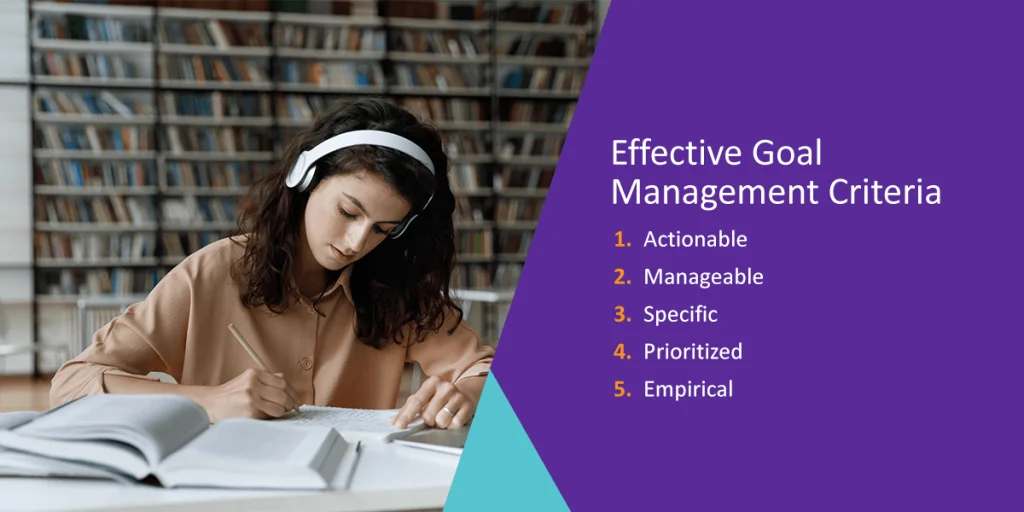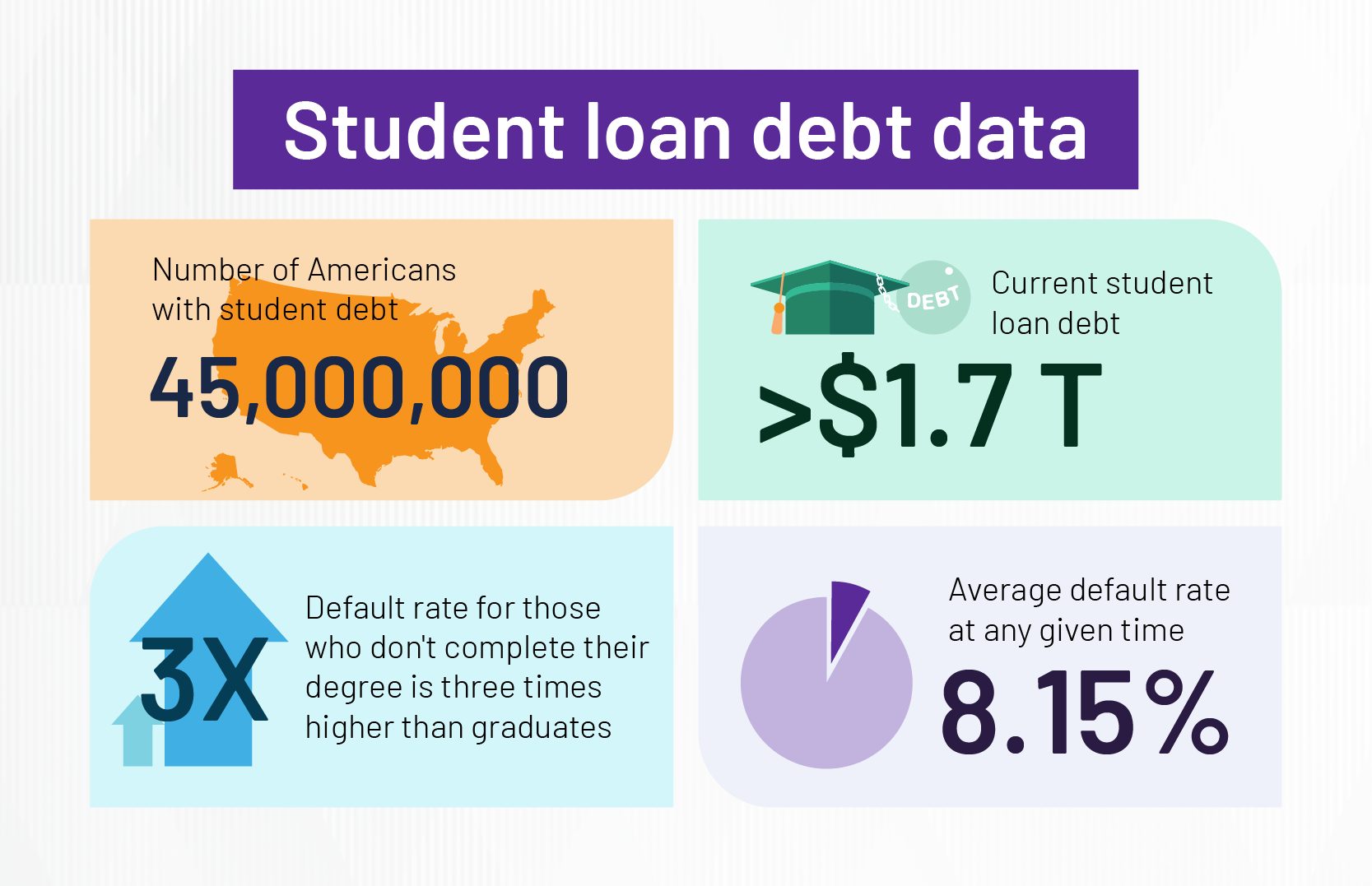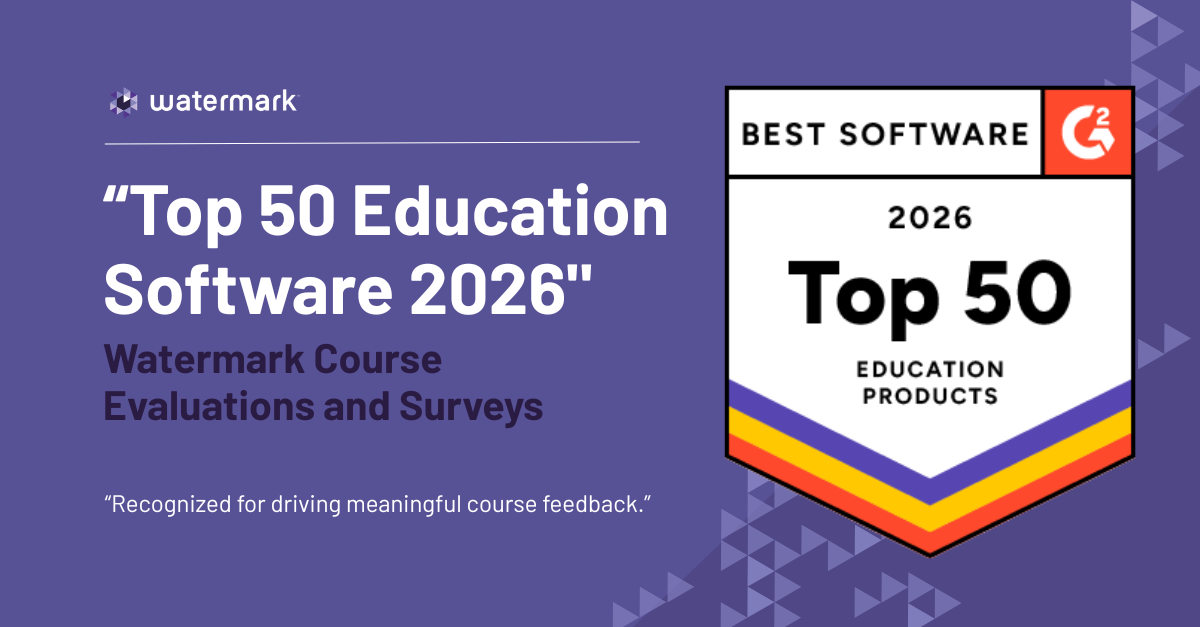
What are your goals? To own your own business? Make partner, or simply move up in the company? To publish a novel? Finish writing said novel? To say yes to an opportunity you’ve previously declined out of fear? To get one actual page of this stupid novel on paper even if it kills you?!
Goals come in all sizes. Some are concrete; some are abstract. Some goals can be relatively easy to achieve, while others can only be done by figuratively moving mountains. (Unless your goal is to build a mountaintop removal mining empire, in which case you’re going to be literally moving mountains.)
Students have their own goals related to their personal, social, and academic lives. Because they have such busy lives and their school performance can impact their futures, effective goal management is essential for fostering student success.
However, almost no goal, large or small, is achievable without a plan. When success coaches work with students, one of the first things they do is help them to set goals that meet effective goal management criteria. Students who can create and manage goals have the tools to reach their desired outcome, preparing them more for their education and life after graduation.
At Tiffin University in Ohio, Susan Marion is the school’s Coordinator for Success Coaches, a program that she established there in 2007. As her program grows and thrives, she shares her insights and experience with Watermark to show the impact of goal management with students.
Effective goal management criteria

Helping students manage goals as a success coach can take many forms. Understanding what criteria students should be including in their goals can ensure coaches are providing them with the skills and habits that will optimize their objectives and progress.
1. Actionable
Goals are always more frustrating and less likely to be achieved if there is no clear first step to achieving them.
“For example,” Marion shares, “it is a goal of mine to visit every national park, but that goal means little if I never begin to figure out how I will get to Kobuk Valley, the country’s least visited and least accessible (feet, dogsleds, and snowmobiles only, please) national park, located on the Arctic Circle.”
The same goes for students making goals related to their education. Whether they want to improve their grades, research with a professor, or apply to grad school, students need to develop plans that guide them toward the finish line rather than just define what they want to achieve.
Academic advisors and coaches can help point out potential challenges and hurdles, allowing students to brainstorm ways they might overcome them. Together, they can break down their journey into actionable steps that help students understand what they need to do to complete their goals.
“It’s extremely important that my students and I talk about the first, second, third step, and so on, to accomplishing a goal,” Marion continues, “such as figuring out how your average success coach based in the Midwest can hitch a ride to the Arctic Circle.”
2. Manageable
Goals should also be manageable — students should be able to realistically accomplish them and all the included steps. While big goals, like going to all national parks, are inspiring, they can be challenging for someone who has never been to one. Instead, setting a simpler objective that can set students on the right path to their big-picture goal can keep them motivated and progressing.
“One of my freshmen this year has an English teacher who has a particularly esoteric way of explaining things,” Marion explains. “Her syllabus, even for someone like myself, reads a bit like a riddle. So it’s no surprise that Davin is nearly always at sea when it comes to knowing what exactly he is supposed to do in her class.
“In a situation like this, the most manageable first step is not to complete even a simple assignment — it’s to schedule 10 minutes to speak with his professor after class in order to get more clarity on the assignment itself.”
3. Specific
Goals are always easier to achieve the more specific they are. For example, many students make goals to improve their grades. While this goal can benefit students in several ways, the vagueness of it can leave students lost. They may not know how to focus their study habits. Instead, they can define how much they want to improve their grades and by when. This system will provide more direction and help create more actionable steps.
Marion applies this with her students through timelines. “With my students, we break down goals into small and large, as well as short-, medium-, and long-term.” When coaching students through their academic goals, encourage them to get as specific as possible with their desired outcome.
4. Prioritized
For students working with multiple goals, academic coaches can help them develop a priority system to organize their actions and determine what they need to focus on first. When students fail to prioritize their goals effectively, they might fail to accomplish them within the necessary timeframe. Within their goals, students and coaches can determine step order by giving each one a priority level, whether by importance or deadline.
“Based on our assessment of goals as either short-, medium-, or long-term, I use an ABC system with my students,” Marion says, “any work that needs to be completed and turned in within the next 24 hours is labeled A; work that I want to see completed by our next meeting (even if it is not technically due for another day or two) receives a B, and anything that a student could do but is long-term enough that it doesn’t match the urgency of the As or Bs is labeled C.”
5. Empirical
While on the road to goal achievement, it is crucial to be able to measure one’s progress. Timelines can determine when students might need to reach their goal or specific steps, but they should also have ways to see if they need to extend their deadline or if they are on track.
For a student trying to improve their grades, they might use their homework and test scores to measure how they are improving. If their test scores start to get better, they can determine that they are progressing toward better grades. However, they might need to reevaluate their techniques, timeline, or goal if grades stay the same or worsen.
The role of technology in goals
Technology has substantially improved Marion’s and her students’ abilities to document goals and assess progress. “I have a student this fall who is taking an art class, for which he had a project due on Monday before we met. I called him last Friday to see how it was going. He said that he was halfway through, so I simply asked him to take a picture on his phone of what he had so far and text it to me,” says Marion. “I knew that if he didn’t send me anything, his story was most likely untrue from the start, and if he did, he would know that I was holding him accountable to his word and for his work. Indeed, not five minutes later, I received an image of what certainly looked like a work in full progress.”
Track student goals and progress with Watermark

Watermark can help your faculty and academic coaches track student progress and achievements while streamlining student success and goal management. Watermark Student Learning & Licensure collects student performance data in one centralized platform, providing administrators and faculty with an overview of student metrics. Watermark Student Success & Engagement identifies student risk levels based on their activities and performance.
Both solutions can help academic coaches and advisors guide students toward effective goals that will support their education. Request a demo today and discover how Watermark can strengthen your faculty’s approach to goals on your campus.
















































































































































































































































































































































































































